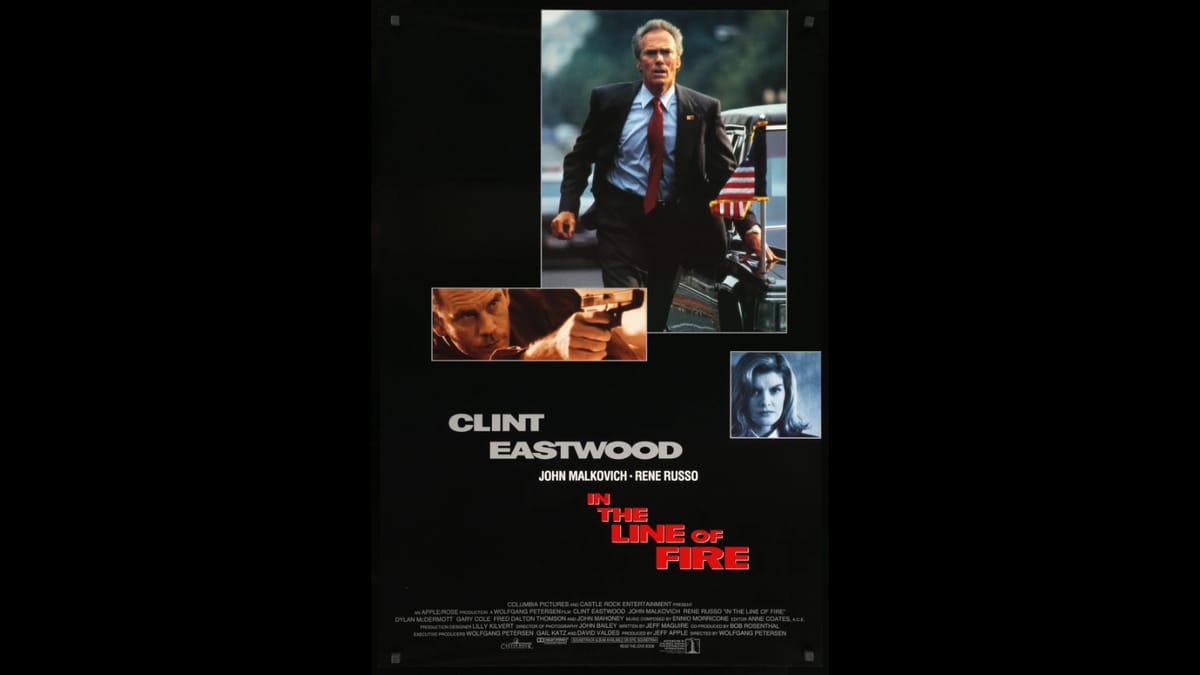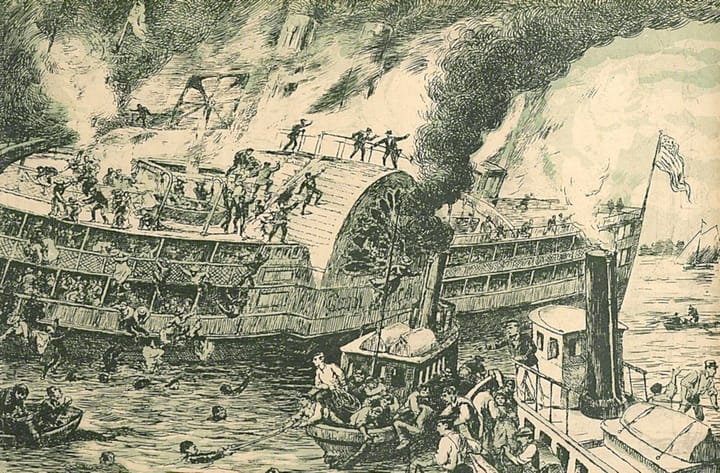"In The Line of Fire": Assassination, memory, generations and history.
This taut political thriller from 1993 evoked no deep thinking at the time, but it has some fascinating implications 31 years later.

Not long ago, on a snap decision, my husband and I decided to re-watch the 1993 film In the Line of Fire, a generally well-regarded Hollywood action thriller by German director Wolfgang Petersen, starring Clint Eastwood, John Malkovich and Rene Russo. We've seen it before, of course, and I recall seeing it in the theater 31 years ago. It was enjoyable and seems to hold up as a thriller after all that time, but I was struck by the interesting things one can see in it now, looking back on the picture as an artifact of its time, and also of the central preoccupation of the plot--that being the assassination of U.S. Presidents, especially John F. Kennedy in 1963. I also recently heard an episode of the very good podcast "Unclear and Present Danger," which examines politically-themed films from the 1980s and 1990s, about In the Line of Fire, and that stimulated my thinking about it too. There's actually a lot to unpack in this film, and it touches a number of subjects that I've dealt with as a historian, so I thought it might be worth a column here.
The main character of In The Line of Fire is a U.S. Secret Service agent, Frank Horrigan (Eastwood), who in the early '90s is getting on in years and is haunted by the fact that he was present at the November 1963 assassination of Kennedy but couldn't prevent it. In the film's alternate-reality present, presumably 1992, an unnamed President is running for re-election, and a menacing troll, played by John Malkovich, pops up on the Secret Service's radar screen as a potential assassin. The would-be killer, who calls himself Booth after Lincoln's murderer, calls Horrigan and has something of a cat-and-mouse type of relationship with him, taunting him over JFK and with cryptic clues about Booth's own plot to take out the current chief exec. There's a subplot involving Horrigan's romance with Lily (Russo), a fellow agent, but most of the film's attention is focused on Booth, also known as "Leary," and the Eastwood character's attempts to stop him before he carries out his scheme.


